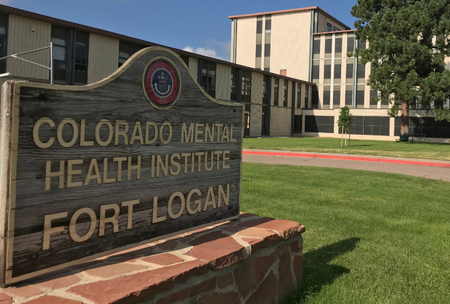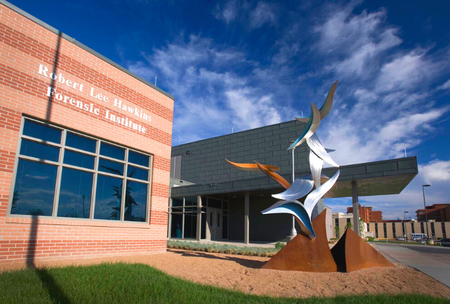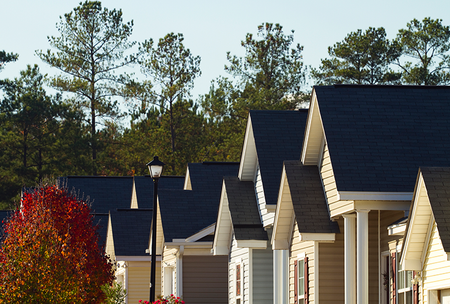Civil and Forensic Mental Health
- Looking for help with a mental health crisis?
-
Whatever you're going through, Colorado Crisis Services can help. Support is one step away:
- Call 1-844-493-8255: Connect with someone who will listen, understand and care.
- Text "TALK" to 38255: Begin a text conversation at any time.
- Walk-in centers: Get support in-person at your closest crisis center.
About the Office of Civil and Forensic Mental Health
The Office of Civil and Forensic Mental Health (OCFMH) operates Colorado’s two mental health hospitals, the Forensic Services Division and the Division of Mental Health Transitional Living. The office provides a continuum of mental health care that includes pre-trial restoration services, inpatient hospitalization and, soon, transition homes for community-based care.
Civil clients and patients are individuals who are committed by a civil court into the care of the Colorado Department of Human Services, whether voluntarily or involuntarily, because they have serious and persistent mental health conditions. OCFMH provides inpatient hospital care as well as transitional, community-based services, depending on the patient or client’s individual needs.
Forensic clients and patients include two types of individuals. One category is individuals who are charged with a crime and have a mental or developmental disability that prevents them from assisting in their own defense or rationally understanding the criminal court proceedings. The second category is individuals who have been charged with a crime but found not guilty by reason of insanity. OCFMH works across the justice system to provide evaluations, treatment and case management for these clients.
- Office of Civil and Forensic Mental Health organizational chart
Download a PDF of the OCFMH org chart.

- Office of Civil and Forensic Mental Health publications and reports
Competency Restoration Services
The Profile of the State of Colorado's Competency Restoration Services report provides an overview of the Office of Civil and Forensic and Mental Health's (formerly the Office of Behavioral Health) provision of competency restoration services and OCFMH's efforts toward the coordination of competency restoration services with other existing programs pursuant to C.R.S. 27-60-105. The report highlights data regarding the number of individuals ordered to competency restoration services, the average time frame for beginning and ending such services, the types of settings in which competency restoration services are provided, and the outcomes of such services.
- A Profile of the State of Colorado's Competency Restoration Services: Title 27, Article 60 (C.R.S. 27-60-105(5)) January 1, 2023
- A Profile of the State of Colorado's Competency Restoration Services: Title 27, Article 60 (C.R.S. 27-60-105(5)) January 1, 2022
- A Profile of the State of Colorado's Competency Restoration Services: Title 27, Article 60 (C.R.S. 27-60-105 (5)) January 1, 2021
- A Profile of the State of Colorado's Competency Restoration Services: Title 27, Article 60 (C.R.S. 27-60-105 (5)) January 1, 2020
- A Profile of the State of Colorado's Competency Restoration Services: Title 27, Article 60 (C.R.S. 27-60-105 (5)) January 1, 2019
Colorado Mental Health Hospital in Fort Logan
The Colorado Mental Health Hospital in Fort Logan (CMHHIFL) is one of two state psychiatric hospitals providing inpatient behavioral health services in Colorado. The hospital has 94 civil adult inpatient beds and 44 forensic beds. Medical care, rehabilitation services (physical, occupational and speech therapy) and clinical programming are available to patients based on their treatment needs.
Colorado Mental Health Hospital in Pueblo
The Colorado Mental Health Hospital in Pueblo (CMHHIP) is a 516-bed acute care psychiatric hospital that provides inpatient behavioral health services for adults, adolescents and geriatric patients. CMHHIP serves civil patients and individuals with pending criminal charges who require evaluations of competency, individuals who have been found to be incompetent to proceed (restoration treatment) and individuals found to be not guilty by reason of insanity by Colorado's criminal courts.
Forensic Services
OCFMH's Forensic Services Division provides evaluation, treatment and case management to the forensic population statewide. Services include evaluations and opinions on competency to proceed, sanity and mental condition evaluations, jail-based and community-based competency restoration services and case management of pretrial detainees and of persons found not guilty by reason of insanity (NGRI).
Mental Health Transitional Living (MHTL) Homes
OCFMH has a new program, Mental Health Transitional Living (MHTL) Homes, to provide an added layer of services within CDHS's behavioral health continuum of care. These homes will be used as a transition to a less restrictive setting for individuals with severe mental health conditions. Clients may stay as long as necessary for stabilization with an ultimate goal of reintegrating clients successfully in the community. The focus is to provide continued support with social and life skills development, as well as assistance with other daily life activities based on the client’s individual needs.




